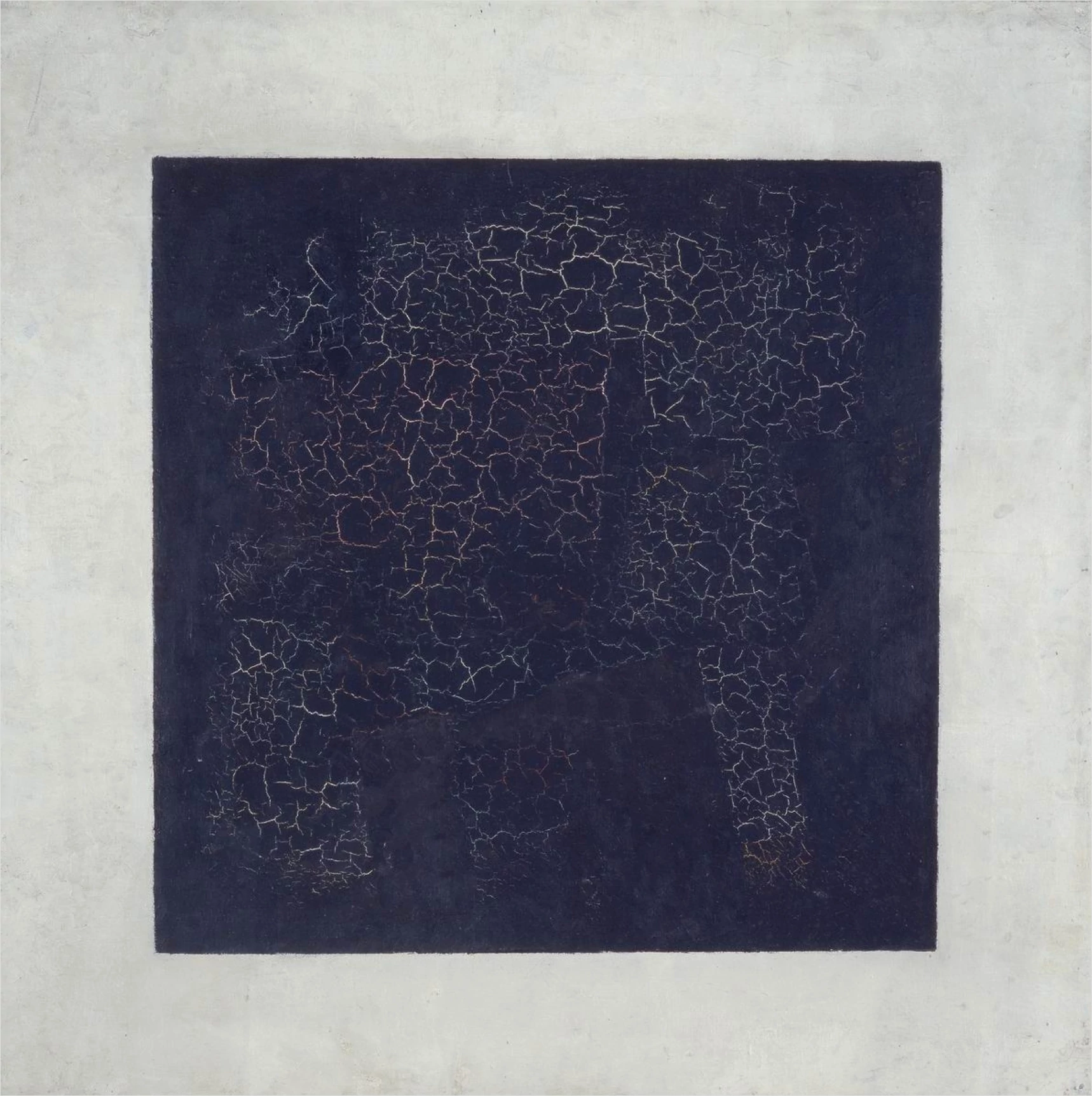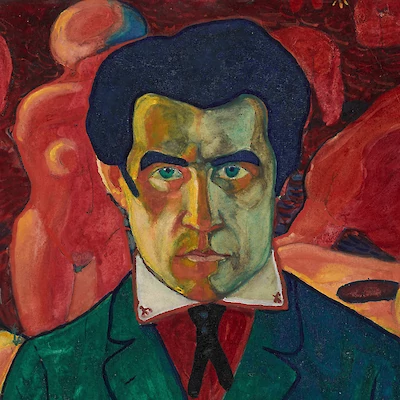

Kazimir Malevich
"Art does not need us, and it never did"
1879 – 1935[Editor’s Note: On September 20, 1930 Kasimir Malevich was arrested. The official statement claimed “the present case arose on the basis of a report to the OGPU that Malevich, during his official trip to Poland in 1927, met with a group of artists hostile to the USSR” — though his arrest was made a full three years after his trip to Poland. It is clear that Malevich’s arrest was an opporunity to enforce the cultural dogma of the Soviet Union, and Malevich cannily sidesteps his assiciation with the ‘bourgeois’ by claiming his mistreatment at their hands. It’s important to note that the suspicion and criminalization of dissent was the environment that spawed Malevich’s furious ideology of Supremacism — a war against the restricting institution of high art.]
Transcript of the OGPU (United State Political Agency)
Interrogation of Malevich, September 1930
STATEMENT OF INTERROGATION
CONDUCTED IN PP OGPU IN LVO
Op. Upolnomochenny. 7th Section [surname]
PO DELU ZA No
I, the undersigned, have been interrogated as the accused (witness— crossed out]
give evidence:
1. Surname: Malevich
2. First Name, patronymic: Kazimir Sevennovich
3. Age (the questionnaire is further not filled out, the page is crossed out]
Having been warned about the responsibility of giving false testimony, I provide the following testimony in relevance to the case:
My view on art: art must provide the newest architecture and everything connected with its entirety, reflecting the social problems of proletarian society.
I am being accused of formalism by the staff of the State Institute of the Arts in the person Atsarkina and Serebnakov, This is not correct as I have proven with my work and my contemporary view on art; I am striving to be closer to production: my new works on dishes are in demand for export, which provides our union with an economic benefit; at the same time there is recognition in the West of our innovation in art, with which we can show our achievements on the cultural front.
I traveled abroad on official business on behalf of Glaviskusstvo. I completely fulfilled the task with which I was charged The exhibitions that I organized in Germany and Poland presented a favorable impression of Soviet art I never shared the views of the bourgeois world in art and never belonged to any rightwing currents When I was in Warsaw, the rightwing — the bourgeois practitioners of art didn't even provide me with adequate space. In Germany I was referred to as the “Bolshevik who has arrived.” In Warsaw I wasn't able to contact the bloc “g” as by that time it had fallen apart. It consists of two people and the substance of their work is not connected to mine.
There were no attempts on the part of the practitioners of art of the bourgeois tendency to win me over to their side, nor could there have been, as my convictions and views on art, based on thirty years of work, are known.
From the first days of the revolution, I have been working for the benefit of Soviet art, while at the same time, during the revolution, a part of the reactionary element turned away from work. I come from a worker’s family and became famous by my own efforts. I didn't study anywhere because I couldn't be accepted in any institution of learning due to the social system in tsarist Russia, I received from the Revolution everything I have strived for and now I can, with confidence, apply my knowledge to the common cause.
However, due to the presence of some bureaucratic vestiges from the past, even though I have my own laboratory at the Institute, I am unable to fully develop my own production project, in spite of the fact that in the final decision of the Commission on the purging of the state apparatus the work of my laboratory was recognized as valuable and indispensable in terms of resolving the problems of the new way of life, in textiles and polygraphy, etc ; but there are, as yet, no results based on these decisions. I believe that in the majority of cases this is due to the director, Serebnakov. My usefulness in work is known to: Lunacharsky, the head of IZO CC (Central Committee), VKP(b) (All-Russian Communist PartyBolshevik), Shutko, Kirill Ivanovich 7 ; The Chairman of Cultural Ties with Foreign Countries, Petrov; Tirtadov, Artem S. (8), employee of Narkomtorg (Peoples’ Commissariat of Trade) in the area of export-import, who knows me in connection with my work in the artistic decoration of dishes. All of these persons have known me as a Soviet artist for several decades.
I cannot testify to anything more, I read the statement, and witness the testimony with my signature.
K. Malevich
Interrogated by [signature]